
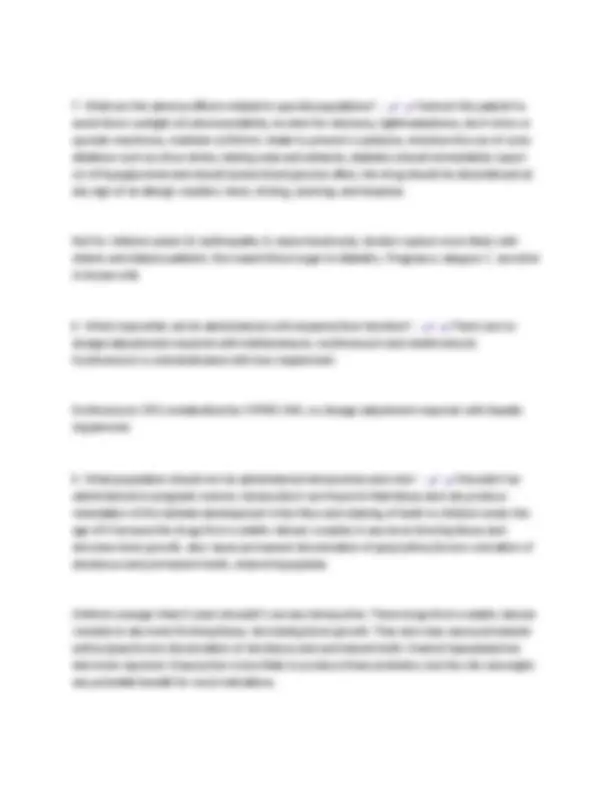
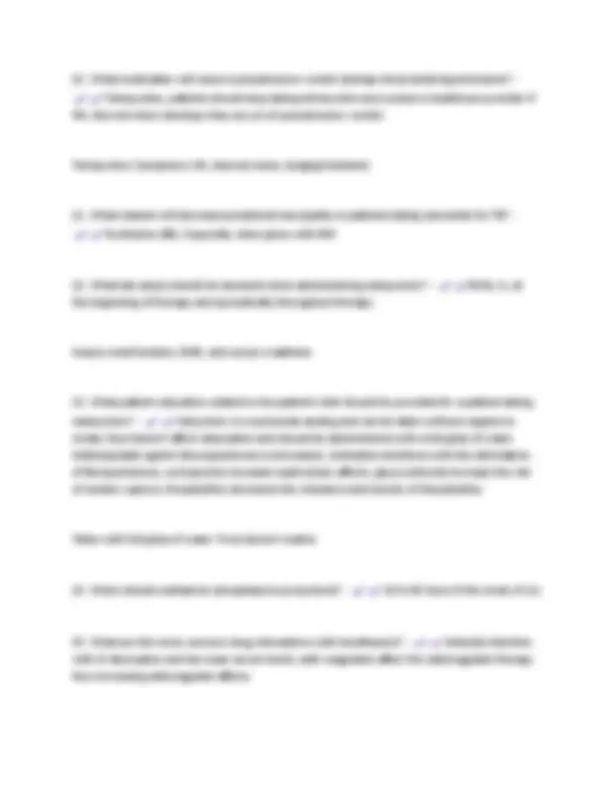
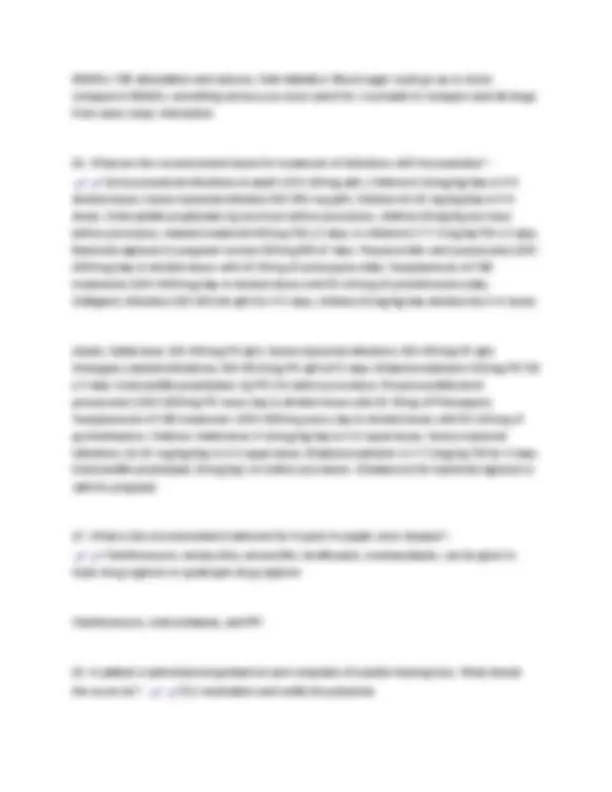
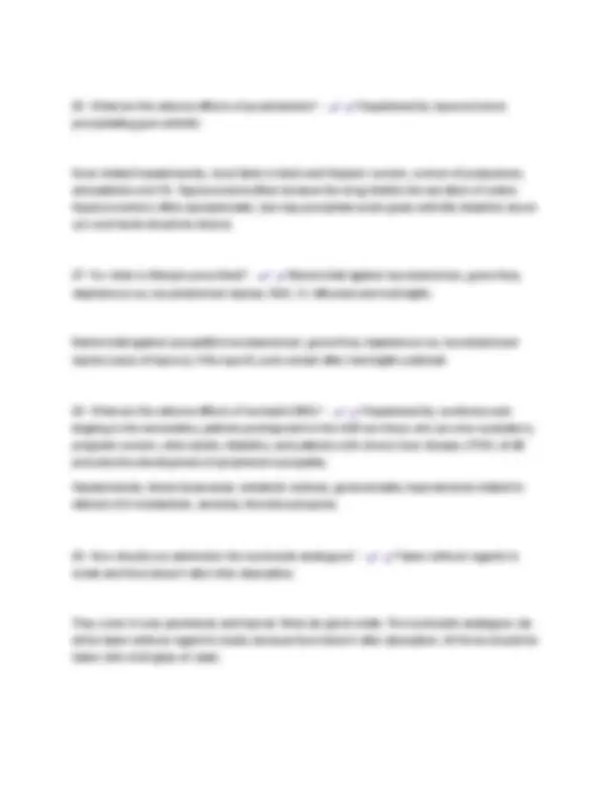
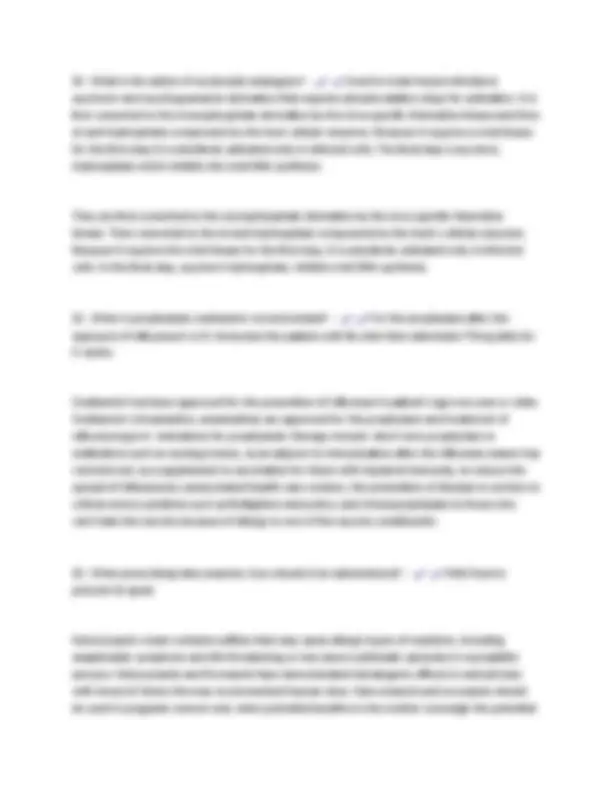
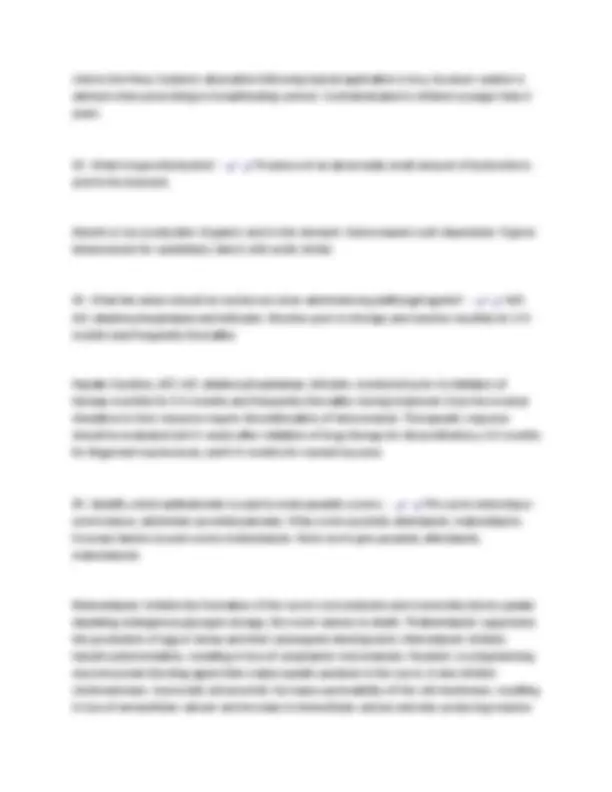


Study with the several resources on Docsity

Earn points by helping other students or get them with a premium plan


Prepare for your exams
Study with the several resources on Docsity

Earn points to download
Earn points by helping other students or get them with a premium plan
Community
Ask the community for help and clear up your study doubts
Discover the best universities in your country according to Docsity users
Free resources
Download our free guides on studying techniques, anxiety management strategies, and thesis advice from Docsity tutors
1. What factors will place the patient at risk for antibiotic resistance? - Excessive and inappropriate use of anti-infective agents, over use of broad spectrum antibiotics or any antimicrobial agent, failure to complete the entire course of treatment, administration of antibiotics when pt has a viral infection, and fluroquinolones should be restricted to patients with community acquired pneumonia with comorbidites. Increasing populations of immune-compromised patients. Increase in the number and complexity of invasive medical procedures. Increased survival of patients with chronic disease, multiple medical comorbidities. Daycare of young children. Overcrowding and travel. The leading cause is use of antibiotics age younger than 2 or older than 65 and excessive and inappropriate use of anti-infective agents. 2. What factors place the patient at risk for hypersensitivity reactions with penicillin's and cephalosporins? -
Typology: Exams
1 / 11

This page cannot be seen from the preview
Don't miss anything!







Amoxicillin, Ampicillin, Clindamycin, Erythromycin, and PCN
NSAIDs: CNS stimulation and seizures. Anti-diabetics: Blood sugar could go up or down. Levaquin & NSAIDs: something serious you must watch for. Coumadin & Levaquin (and all drugs from same class): interaction.
Cross-allergenicity between sulfonamide antibiotics and other drugs containing a sulfonamide.
risks to the fetus. Systemic absorption following topical application is low; however caution is advised when prescribing to breastfeeding women. Contraindicated in children younger than 2 years.
contractions and paralysis of the worm's neuromusculature. Drugs of choice for treating intestinal nematodes includes: mebendazole, pyrantel, and thiabendazole. Tissue nematodes are best treated with mebendazole, thiabendazole, albendazole, or ivermectin.